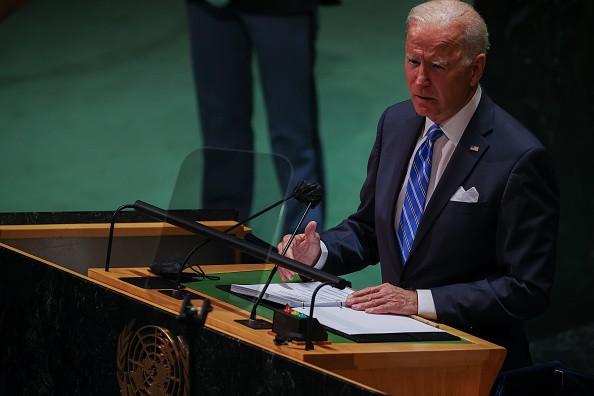Senate Democrats are working on a $3.5 trillion economic proposal that would involve significant government expenditures in child care, immigration, and climate change initiatives if approved.

Democratic lawmakers try to seal the $3.5 trillion Spending Plan through reconciliation process.
Democratic Lawmakers Tried To Enact the $3.5 Trillion Through a Reconciliation Process But 2 Members Opposed
In a recently published article in CBS News, House Democrats have compiled President Biden's domestic policy objectives into a single 2,465-page package aimed at expanding the nation's social safety net and combating climate change.
Democrats intend to utilize an obscure procedure known as budget reconciliation to pass the bill with only a simple majority vote, despite their lack of a majority big enough to overcome the 60-vote barrier that has become all but necessary to carry significant legislation through the Senate.
However, every Senate Democrat would have to vote "yes," and two of them, Kyrsten Sinema and Joe Manchin, have said they won't back it unless the price is reduced. Manchin released a statement late Wednesday night repeating his demand for a strategic "pause" on the bill, arguing that the nation shouldn't be spending trillions of dollars right now, according to a published article in NPR News.
What are in the $3.5 Trillion Spending Plan?
Two Free Years Community College
All students, regardless of family income, will get two years of free community college as a result of the law. It is estimated that it will cost $108 billion. The measure would also increase funding for Pell Grants by $80 billion, which Democrats argue hasn't kept up with rising education costs.
Universal Pre-K and Child Care
Child care support for children aged 0 to 5 will be provided to any family that applies. According to the House Education and Labor Committee, the proposal invests approximately $450 billion to reduce child care costs and offers two years of universal pre-K for 3- and 4-year-olds. According to the group, this plan would maintain child care costs at or below 7 percent of most families' income.
Expanded Federal Health Care Programs and Assistance
One of the long-standing objectives of Budget Committee Chairman Bernie Sanders, an independent from Vermont who caucuses with the Democrats, is to add dental, vision, and hearing coverage to Medicare, as proposed by the House Energy and Commerce Committee, according to CNN News.
The House Energy and Commerce Committee's plan would permanently expand Medicaid eligibility to individuals who reside in states that have not approved Medicaid expansion in order to provide coverage to additional low-income Americans. This may provide coverage to up to 4 million individuals who are now uninsured.
Combats Climate Change
The Senate resolution aims to make investments in order to achieve Biden's objectives of cutting overall carbon emissions by half and having the US electricity system run on emissions-free sources for 80 percent of the time by 2030. It proposes additional polluter fines, new consumer refunds for home electrification and weatherization, tax incentives and subsidies for sustainable energy, manufacturing, and transportation, and electrification of the government vehicle fleet and buildings.
Infrastructure and Jobs
The budget resolution would fund affordable housing, Native American infrastructure, and a Civilian Climate Corporation, which would employ thousands of young people to protect public lands and waterways, strengthen community resilience, and advance environmental justice, according to a published article in The Wall Street Journal.
Overall, the measures are expected to generate $2.9 trillion, but the proposal warns that "this figure is extremely preliminary." According to the drafters, the plan would completely cover the cost of the Democrats' budget package when coupled with an anticipated $600 billion in dynamic revenue growth projected by the White House.
Related Article: Joe Biden Faces Congress Showdown as Democrats Struggle To Advance Agenda Amid Tense Negotiations








